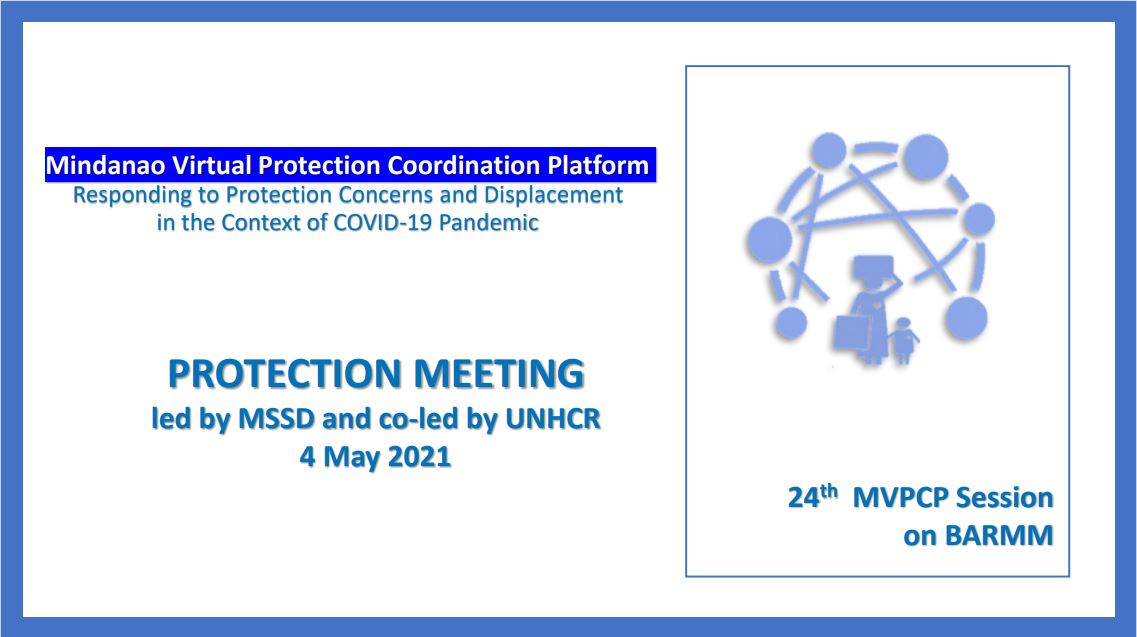24th Mindanao Virtual Protection Coordination Platform (MVPCP) Meeting on BARMM
Dear Partners,
As of 03 May 2021, there are around 97,424 individuals currently displaced in BARMM, with armed conflict, clan feud and violence, and natural disaster as primary causes for recent and protracted displacements. The recent return of the displaced families to their places of origin in Maguindanao primarily contributed to the decrease in the number of current displacements in BARMM as of this reporting.
The Chief Division Officer of Disaster Risk Reduction and Management in BARMM, Hasim Guiamil, stated that there is some good news regarding the vaccine rollout. But despite this, there is still an increasing number of COVID-19 infected individuals in BARMM, and this is on top of the displacement situation in BARMM. In Basilan Province, MSSD BARMM stated that there are still significant numbers of displaced families, particularly on the number of protracted displacements which must be raised to Ministry of Public Order and Safety to check on possible interventions which can be conducted for the protractedly displaced families due to rido. On another note, MSSD BARMM also mentioned that there is ongoing acceptance of Returning Filipinos from Sabah (REFS) in the island provinces. It further shared that there are already eight batches of REFS, and the ninth batch is underway.
For Lanao del Sur, MSSD BARMM shared that there shall be provision of water services, to include water supply and desludging, which shall address WASH needs of the protractedly displaced families in Lanao del Sur due to Marawi Siege. It also conducted a meeting with relevant agencies regarding camp coordination and camp management in order to address the persisting issues in the transitory sites in Marawi City.
In Maguindanao, CFSI conducted an assessment monitoring in Datu Saudi Ampatuan on 29 April. There are about 328 newly displaced families, and on the market site, there are about 350 families displaced. Health issues include children having high fever and colds. Moreover, most of the IDPs do not practice minimum health protocols, and handwashing is not observed. For identified gaps, there is a need for medical staff to conduct medical missions. Also, IDPs are currently living in cramped situations, as 7-14 families occupy a room in a national high school, and around 600 families are temporarily staying in market site. Moreover, there is lack of water supply and communal toilets available in the displacement sites. In Brgy. Butiren, around 358 households were provided with hygiene kits. MSSD BARMM is encouraging partners to refer the WASH issues directly to Rural Health Unit for immediate interventions, such as awareness campaigns on COVID-19. For more information, please download the 24th MVPCP on BARMM.
UNHCR Philippines is working closely with key government agencies in providing response activities and services to the families forcibly displaced, ensuring that protection is at the center of all humanitarian responses. UNHCR remains steadfast in staying and delivering, especially in these unprecedented times.

